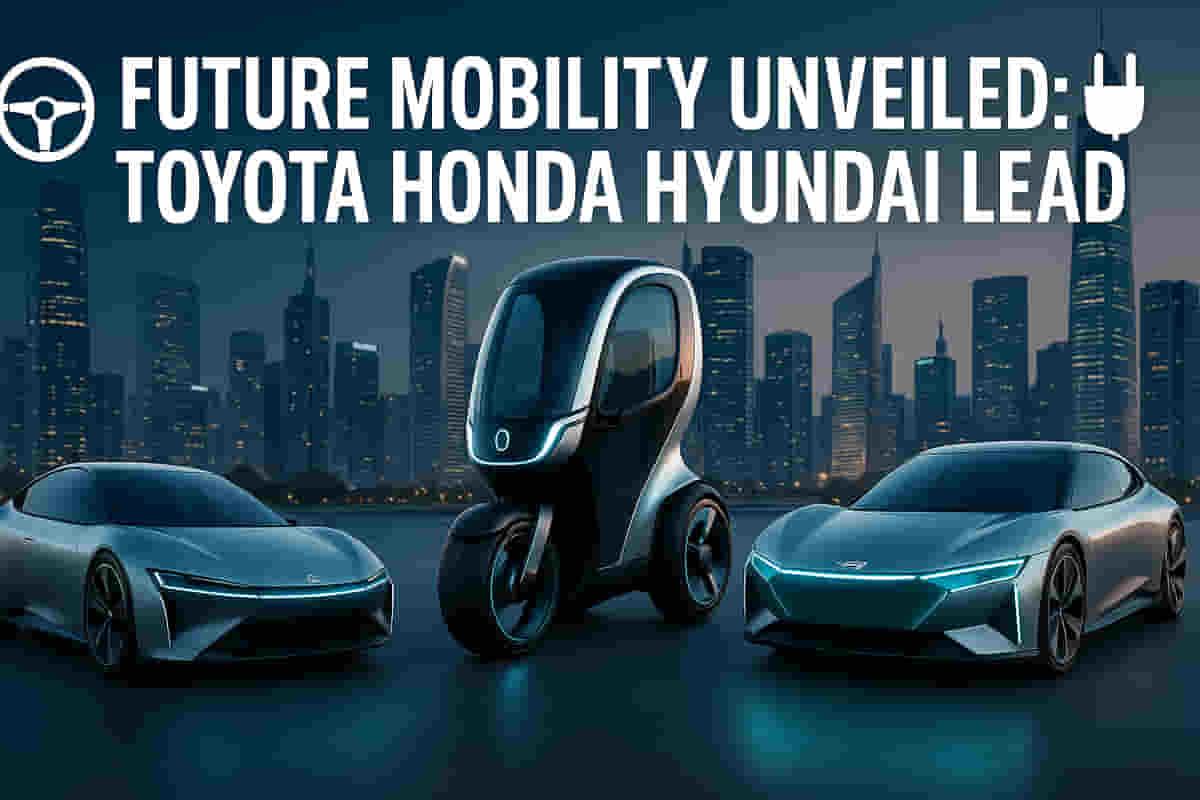Japan Mobility Show Opens: Automakers Unveil Futuristic Concepts and New Vehicles
Auto
|
30th October 2025, 4:00 PM

▶
Stocks Mentioned :
Short Description :
Detailed Coverage :
The Japan Mobility Show, previously known as the Tokyo Motor Show, has opened, signaling a significant event in the global automotive calendar. Rebranded to reflect a broader focus on mobility, the show features key Japanese manufacturers such as Toyota, Honda, Subaru, Mazda, Nissan, Mitsubishi, and Suzuki, alongside international companies like BMW, Mercedes-Benz, Hyundai, and BYD.
Toyota, the world's largest automaker by volume, had the most expansive display, showcasing vehicles from its core brand, luxury division Lexus, Daihatsu, and its new ultra-luxury brand Century. Notable exhibits include the Century Coupe prototype, a bold contender in the ultra-luxury space, aiming to rival brands like Rolls-Royce and Bentley. Lexus presented radical concepts like the six-wheeled LS Concept and the single-occupant LS Mobility Concept, exploring unconventional luxury van and urban transport ideas.
Honda also made a substantial presence, introducing its sleek 0 Series EVs, with the Honda Alpha being a new global EV model primarily for Japan and Indonesia. Other highlights include the playful Daihatsu Copen, a small rear-wheel-drive sports car, and the hybrid Honda Prelude, playing on nostalgia.
Hyundai surprised attendees with the Insteroid, a rugged, video-game-inspired variant of its compact crossover SUV, demonstrating a more extreme take on vehicle design.
Impact: This event sets the direction for future automotive technology and design. For Indian investors and businesses, it signals emerging trends in electric vehicles (EVs), hybrid technologies, sustainable mobility, and advanced driver-assistance systems (ADAS). Companies that adapt to these global trends will likely see better performance. The show's focus on efficiency and new materials could also influence component suppliers and manufacturers in India. The overall sentiment from major global auto shows often influences investor confidence in the automotive sector. Impact rating: 7/10
Definitions: * Mobility fantasies: Visionary or speculative ideas about future ways people and goods will move around, often beyond current technological feasibility. * Futuristic concepts: Designs and technologies that represent potential future advancements and are showcased to gauge public and industry interest. * Ultra-luxury brand: A brand positioned at the highest end of the market, characterized by exceptional quality, craftsmanship, exclusivity, and high price points. * Compact crossover SUV: A type of vehicle that blends features of a passenger car (like a sedan or hatchback) with those of an SUV, typically smaller than traditional SUVs. * EVs (Electric Vehicles): Vehicles powered entirely or primarily by electricity stored in batteries. * Hybrid: A vehicle that uses more than one form of propulsion, most commonly a gasoline engine combined with an electric motor. * Marque: A brand or trademark, especially in the context of luxury goods or vehicles.